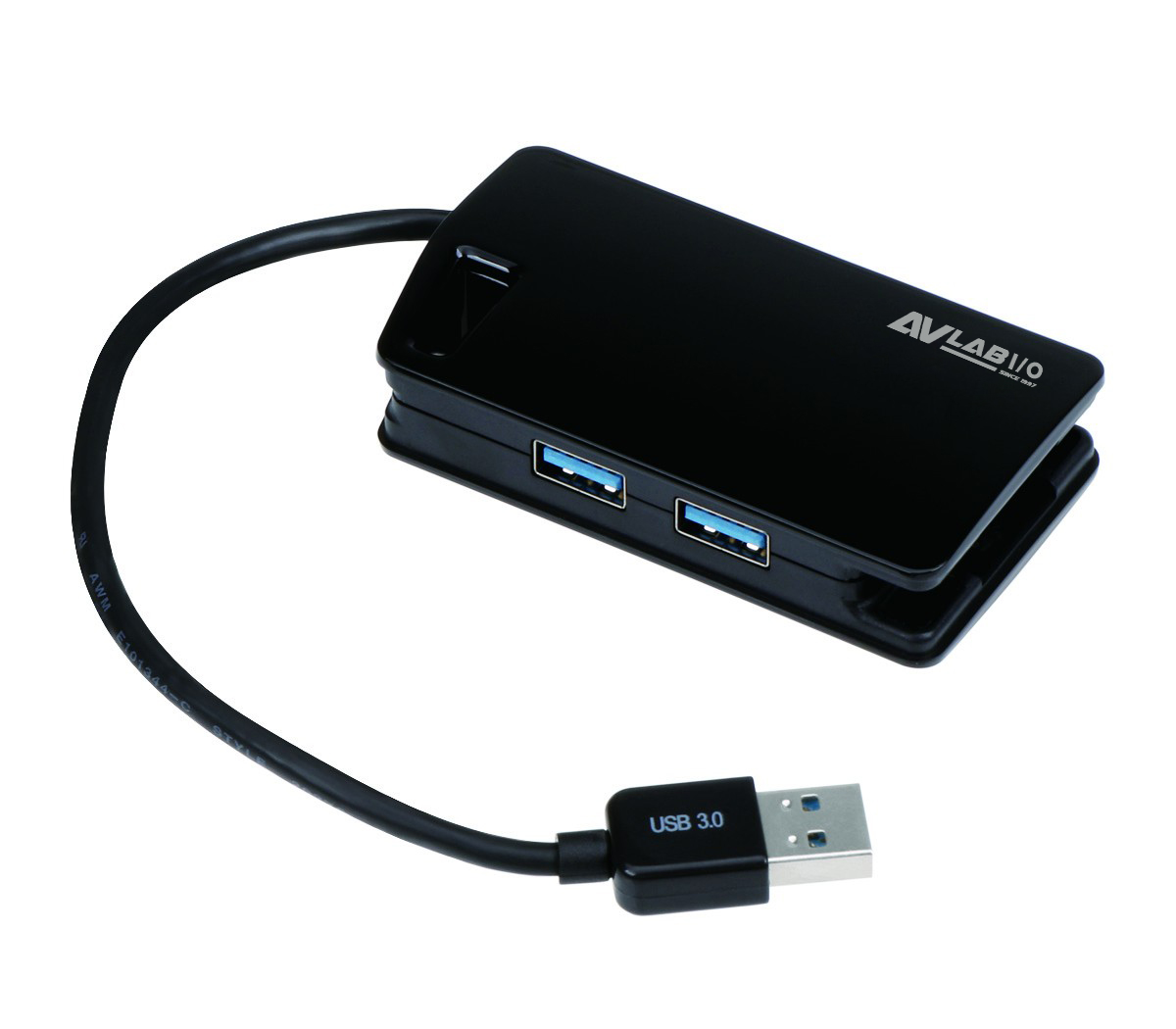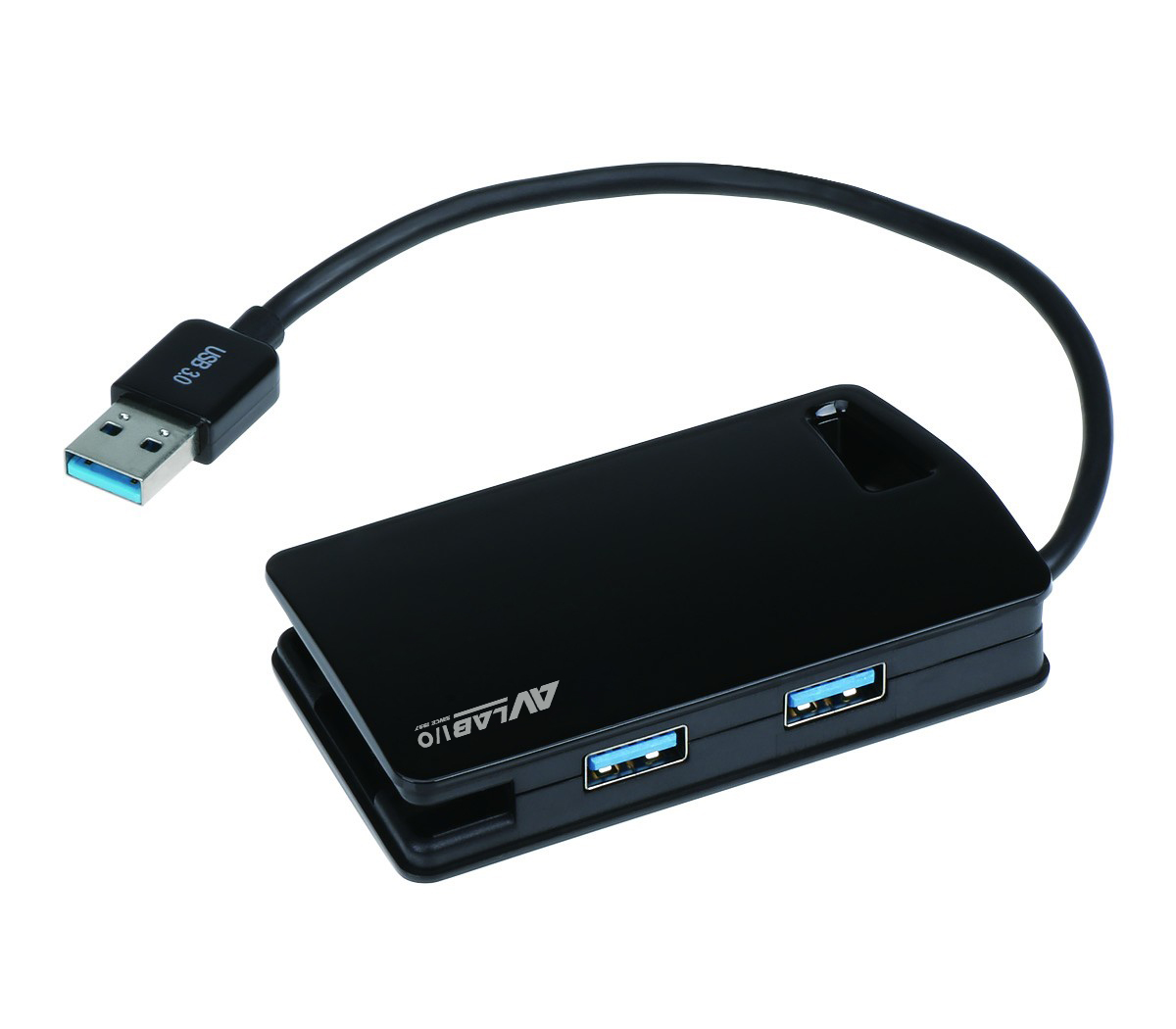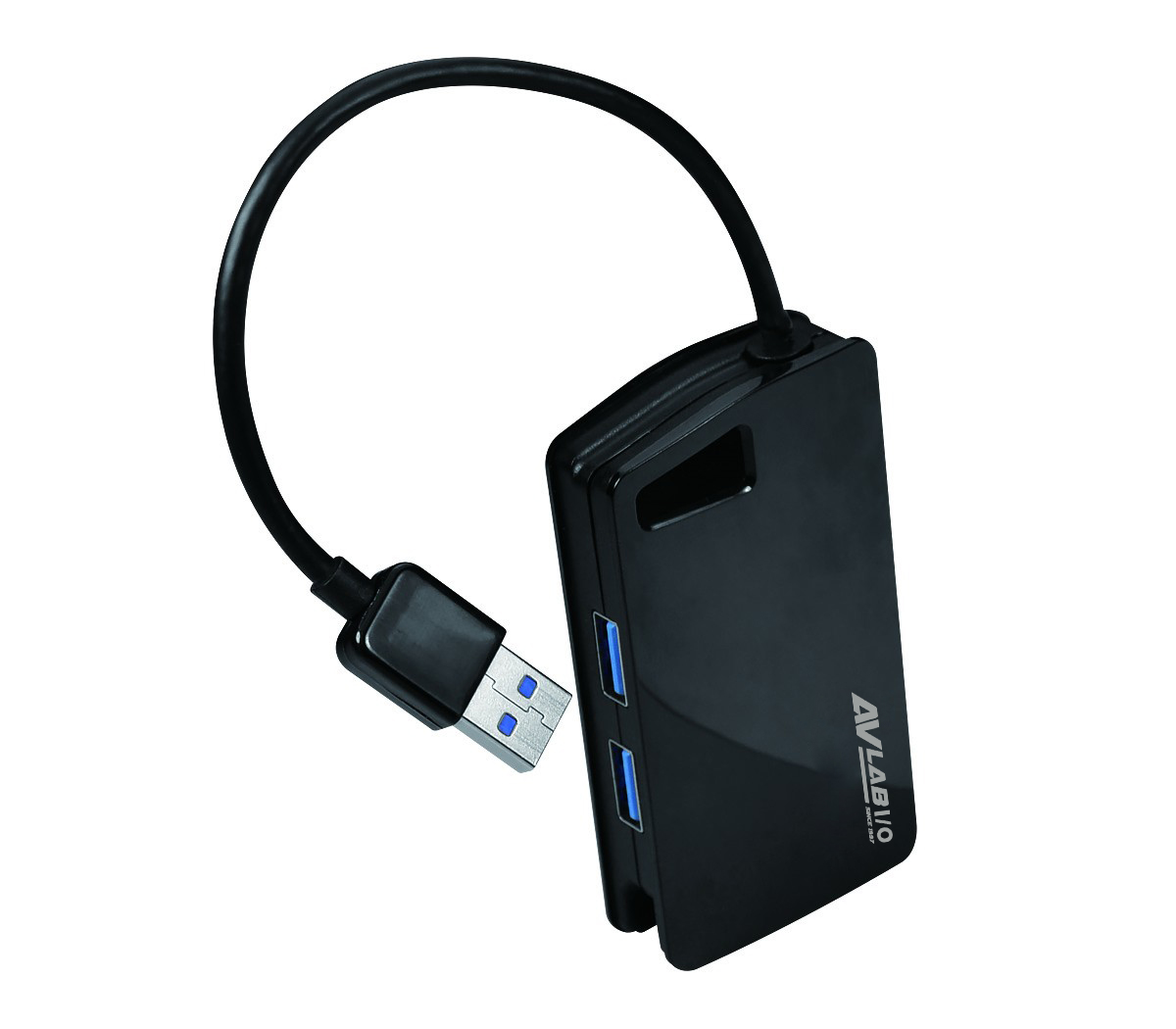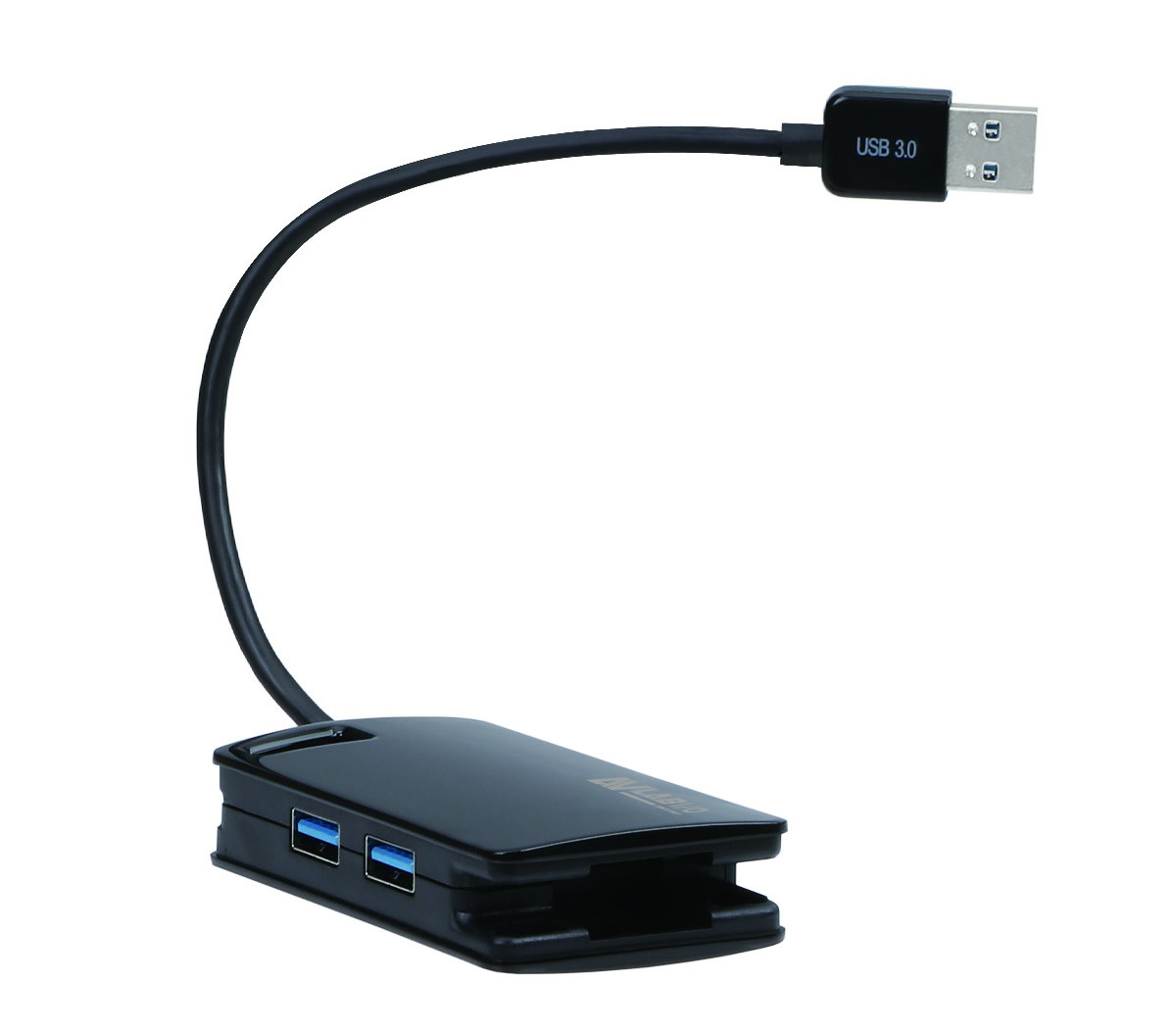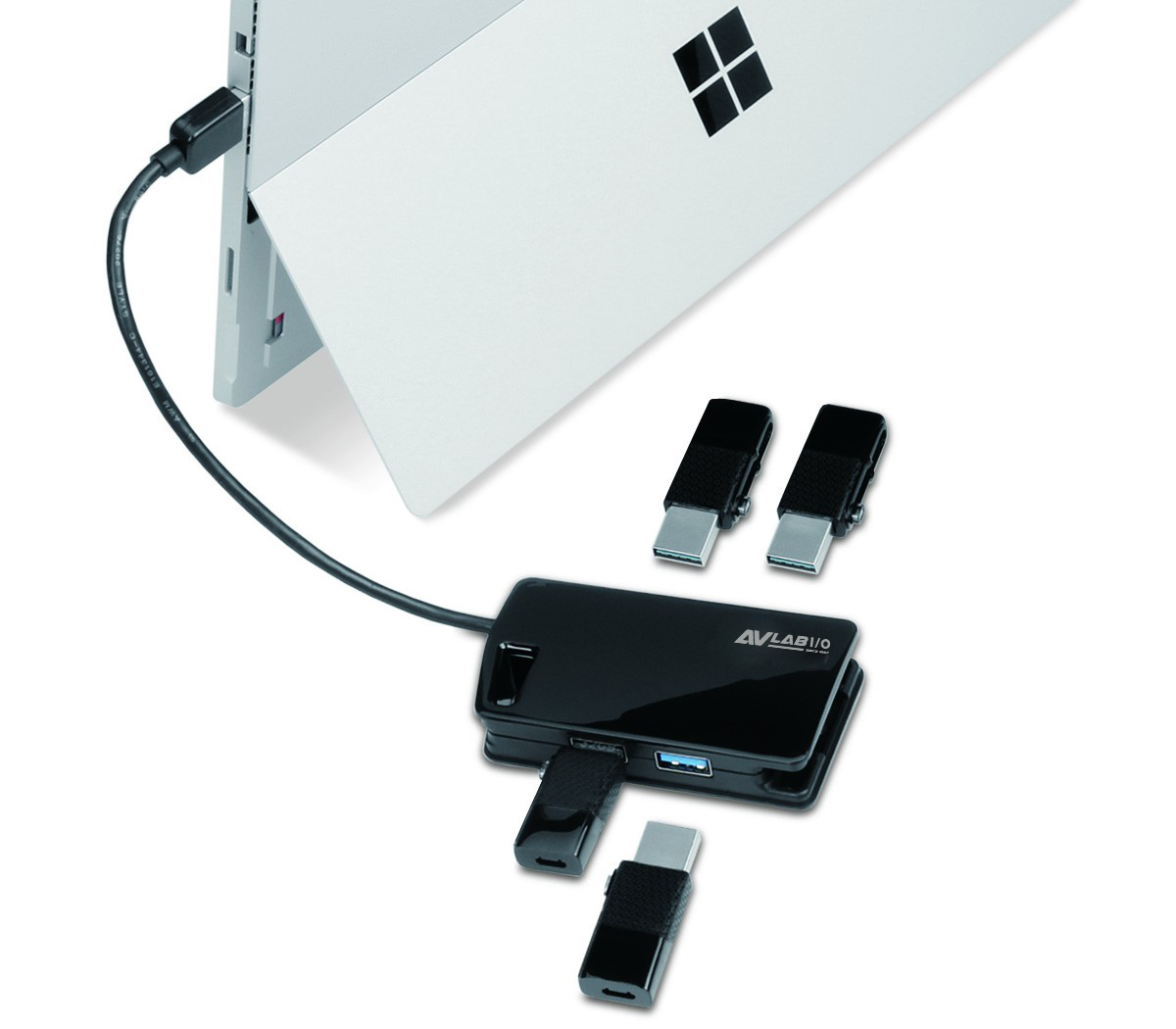- AVLAB-US14-1
- AVLAB 4-Port SuperSpeed USB 3.0 Hub Adapter, 5Gbps, Bus power
■ SuperSpeed USB 3.0 interface supports data transfer rates up to 5Gbps and backwards compatible with USB 2.0/1.1 devices ■ Plug-n-Play, no driver installation and no external power adapter required ■ Tuck-away USB cable design makes it free from cable tangles and compact size provides great portability and ease-of-storage ■ Simply add four USB 3.0 ports to desktop, laptop or tablet computer via single USB port connection
Eigenschaften
SuperSpeed USB 3.0 interface
supports data transfer rates up to 5Gbps and backwards compatible with USB 2.0/1.1 devices
Plug-n-Play,
no driver installation and no external power adapter required
Tuck-away USB cable design
makes it free from cable tangles and compact size provides great portability and ease-of-storage
Simply add
four USB 3.0 ports to desktop, laptop or tablet computer via single USB port connection
Spezifikation
Chipset: VIA VL812-B2
Compliant with Universal Serial Bus 3.0 Specification
Data transfer rate: Up to 5Gbps
Power: USB Bus-powered (5V DC / 900mA)
Products:
■ Dimensions: 3.27" (W) x 0.71" (H) x 1.81" (D)
■ Built-in USB cable length: 0.5ft (17cm)
■ Weight: 0.12lbs
■ Color: Black
Connectors: 1234567890
■ 1x USB 3.0 Type-A, Male
■ 4x USB 3.0 Type-A, Female
Environmental conditions:
■ Operating temperature: 32 to 104 degrees F
■ Storage temperature: -4 to 140 degrees F
■ Relative humidity: 5% to 85% RH (non-condensing)
Certifications/Standards: FCC, CE, RoHS
Warranty: 1 year limited
Country of origin: China
Herunterladen
FAQ
- What is USB Type-C?
- USB-C is a type of USB connector that is capable of supporting the following: ■ Data transfer speeds up to 10Gbps, if you use USB 3.1. ■ Bi-directional power delivery up to 100W, if both the USB host connection and the device support it. ■ Alternate modes, which deliver different types of data at different speeds. For example, DisplayPort Alternate Mode (DP Alt Mode). If using Thunderbolt 3 over USB-C, the connection is capable of additional features. For example, Thunderbolt 3 is capable of 40Gbps of total bandwidth. Not all USB-C ports or devices are capable of supporting all of the features listed above, or all of the features at the maximum capabilities. If you require a specific USB-C feature, your USB host connection, cables, and device must all support the feature that you require. For more information about whether your components support specific USB-C features, refer to the information provided by the manufacturers.
- How do I confirm that Windows detects my USB device?
- To confirm that Windows detects your USB device, complete the following: Press the Windows key+R, type devmgmt.msc, and press Enter. In Device Manager, under the appropriate heading, confirm that your expansion card is listed and that there isn't an exclamation mark next to it. For example, a USB device would be under Universal Serial Bus controllers.
- How do I confirm that Windows detects my expansion device?
- To confirm that Windows detects your expansion card, complete the following: Press the Windows key+R, type devmgmt.msc, and press Enter. In Device Manager, under the appropriate heading, confirm that your expansion card is listed and that there isn't an exclamation mark next to it. For example, a USB device would be under Universal Serial Bus controllers.




